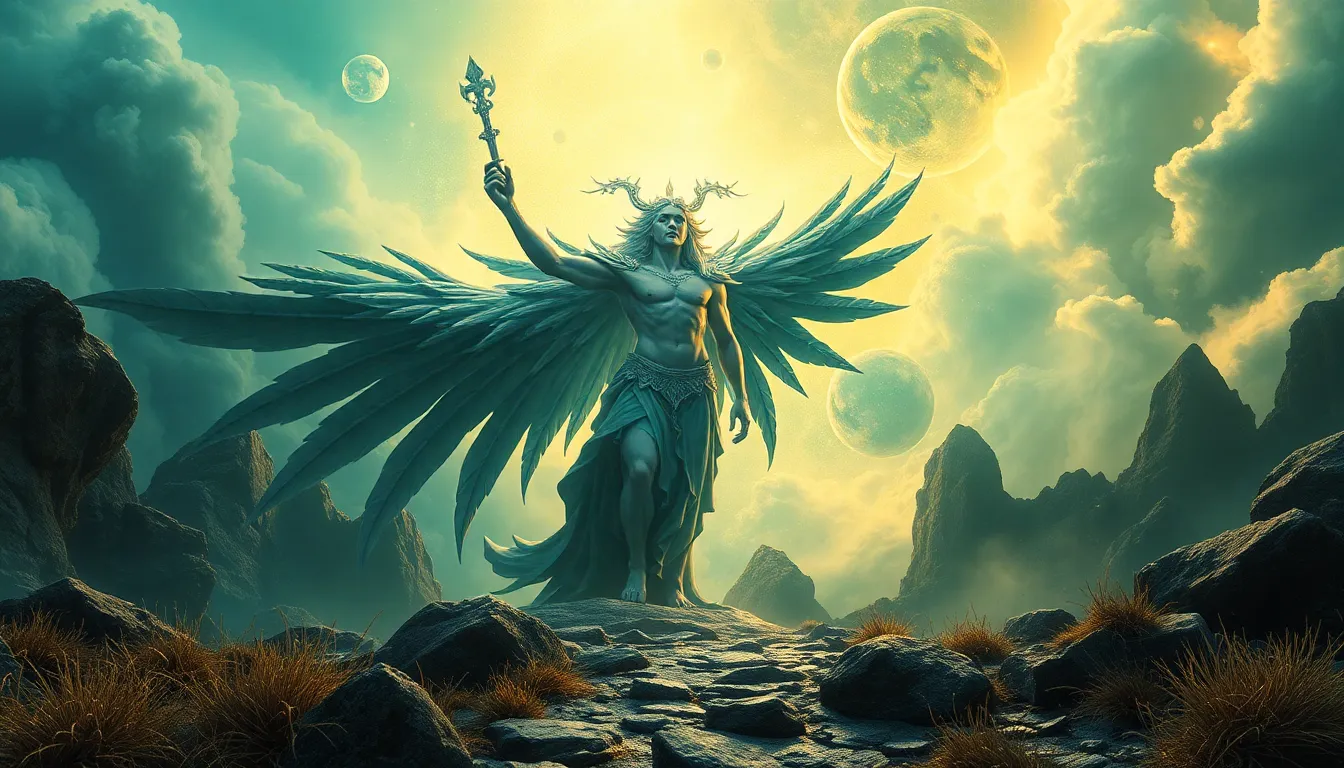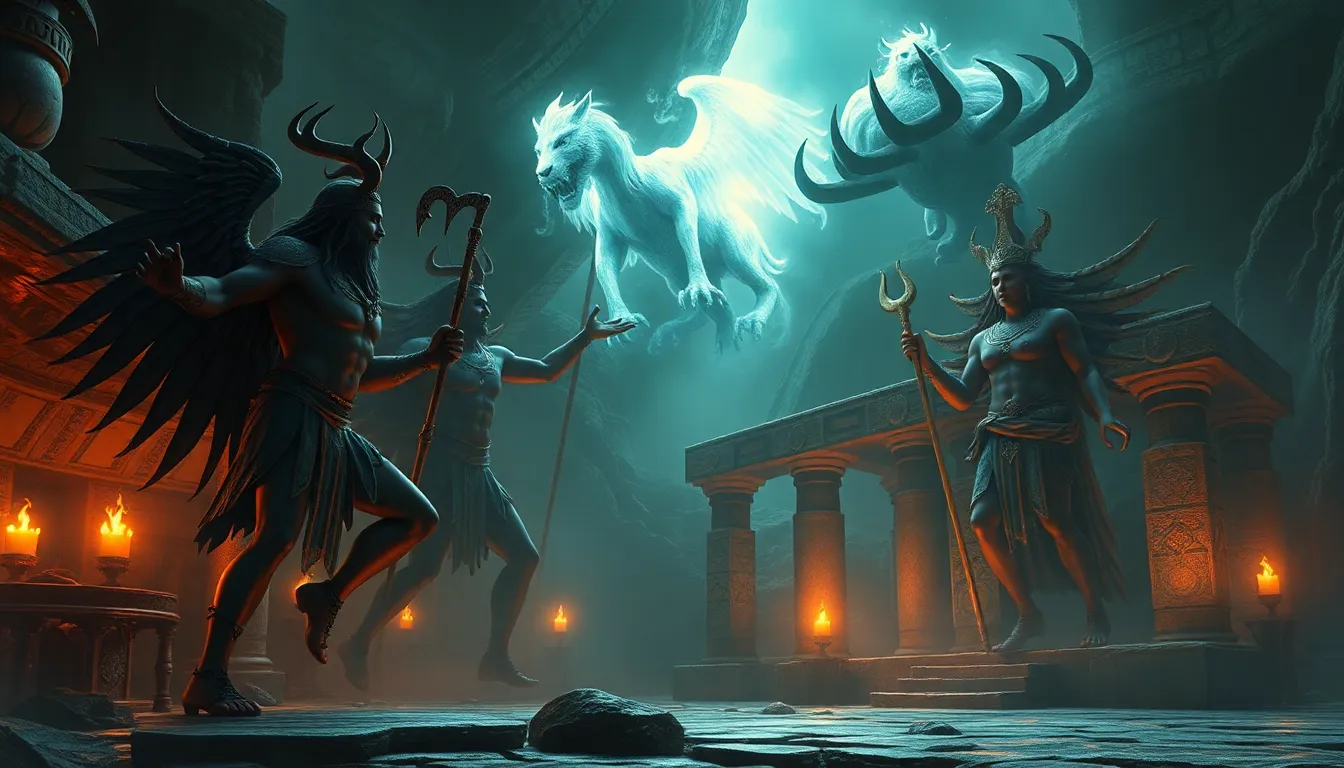Transcendence in Tales: Exploring the Most Epic Transformations in Mythology
I. Introduction
Transcendence in mythology often refers to the process of surpassing ordinary limits, achieving a higher state of existence, or transforming one’s essence through various trials and tribulations. This theme is integral to mythological narratives, where characters frequently undergo significant transformations that symbolize deeper truths about the human experience.
The importance of transformation in these tales lies in their ability to convey moral lessons, cultural values, and the complexities of human nature. Through the exploration of transformations, we can gain insight into the psychological and spiritual journeys that define us.
This article aims to delve into the concept of transformation across various mythologies, highlighting epic tales from Greek, Hindu, Norse, Egyptian, Native American, and African traditions. We will analyze the common themes that emerge, the implications of these transformations, and their relevance to contemporary society.
II. The Concept of Transformation in Mythology
Transformation is a ubiquitous theme in mythological narratives, manifesting in diverse ways across cultures. It often symbolizes growth, adaptation, and the journey from one state of being to another.
A. Understanding transformation across cultures
Different cultures interpret transformation uniquely, yet they share common threads:
- Metamorphosis as a symbol of rebirth
- Divine intervention leading to personal change
- Struggles against fate resulting in transformative outcomes
B. Common themes and motifs in mythological transformations
Key motifs often include:
- The journey of the hero
- Trials and tribulations leading to enlightenment
- Nature as a catalyst for transformation
C. Psychological and spiritual implications of transformation
Transformations often represent psychological growth or spiritual awakening. They can serve as metaphors for personal struggles, the quest for identity, and the quest for understanding one’s place in the universe.
III. Greek Mythology: From Mortals to Gods
Greek mythology is rich with transformations, often depicting mortals who ascend to divine status or undergo profound changes in their essence.
A. The tale of Prometheus: The transformation of man
Prometheus is celebrated for stealing fire from the gods and giving it to humanity, symbolizing the transformative power of knowledge and creativity. His punishment highlights the duality of enlightenment and suffering.
B. The metamorphosis of Daphne into a laurel tree
Daphne’s transformation into a laurel tree to escape Apollo underscores the themes of desire, fear, and the ultimate preservation of identity even through physical change.
C. Persephone’s duality: The transformation of seasons
Persephone’s dual existence as the goddess of spring and queen of the underworld illustrates the cyclical nature of life, death, and rebirth, embodying the transformative essence of the seasons.
IV. Hindu Mythology: The Cycle of Rebirth
Hindu mythology emphasizes transformation through the concept of rebirth and karma, presenting a continuous cycle of life, death, and reincarnation.
A. The story of Vishnu’s avatars: From fish to human
The ten avatars of Vishnu, including the fish (Matsya) and the human (Rama), reflect the adaptability of divine essence across different forms to restore cosmic order.
B. The transformative journey of the soul in the Bhagavad Gita
The Bhagavad Gita explores the spiritual transformation of Arjuna as he grapples with duty and righteousness, ultimately achieving enlightenment and understanding his true nature.
C. The significance of karma in personal transformation
In Hinduism, karma dictates that every action has consequences, influencing the soul’s journey and its transformative experiences throughout lifetimes.
V. Norse Mythology: The Power of Change
Norse mythology presents transformation as a powerful force, often intertwined with fate and the cyclical nature of existence.
A. Loki’s shape-shifting abilities and their consequences
Loki, the trickster god, embodies transformation through his shape-shifting abilities, which often lead to chaos and significant consequences for gods and mortals alike.
B. The transformation of Thor: From brute strength to wisdom
Thor’s journey reveals his growth from a warrior relying solely on strength to a wise protector who understands the importance of sacrifice and humility.
C. Ragnarok: The cyclical transformation of the world
Ragnarok signifies the end and rebirth of the world, illustrating the Norse belief in cyclical transformation and renewal following destruction.
VI. Egyptian Mythology: Death and Resurrection
Egyptian mythology places significant emphasis on transformation through death and the afterlife, particularly in the context of resurrection and eternal life.
A. Osiris: The god of resurrection and his transformative journey
Osiris’s death and resurrection symbolize the transformative power of life after death, emphasizing the cycle of renewal and the hope of rebirth.
B. The symbolic significance of the afterlife in Egyptian beliefs
The afterlife represents a transformative journey where the soul encounters trials that determine its fate, highlighting the importance of moral conduct during life.
C. The role of the Book of the Dead in personal transformation
The Book of the Dead serves as a guide for the deceased, emphasizing the transformative process of navigating the afterlife and achieving eternal life through proper preparation and moral rectitude.
VII. Native American Mythology: The Wisdom of Nature
Native American mythology often intertwines transformation with nature, emphasizing the interconnectedness of all beings and the wisdom found within natural cycles.
A. Transformation stories in Indigenous cultures
Many Indigenous stories revolve around transformative experiences that teach vital lessons about respect for nature and the importance of balance.
B. The significance of animal spirits and shape-shifting
Animal spirits often act as guides, embodying transformative qualities that encourage individuals to connect with their inner selves and the natural world.
C. The connection between transformation and environmental consciousness
Transformative narratives in Native American cultures highlight the need for environmental stewardship and understanding one’s role within the ecosystem.
VIII. African Mythology: The Role of Ancestors and Spirits
African mythology emphasizes transformation through the influence of ancestors and spirits, where personal and communal identities are shaped by these relationships.
A. Anansi the Spider: The trickster’s transformative tales
Anansi, the spider, represents the archetype of the trickster, whose cleverness and transformative stories teach lessons about wisdom, resilience, and community.
B. The significance of ancestors in personal and communal transformations
Ancestors play a crucial role in guiding transformations, shaping the values and identities of contemporary generations through stories and rituals.
C. The use of masks and rituals in facilitating transformation
Masks and rituals serve as tools for individuals to undergo transformations, allowing them to connect with spiritual realms and their community’s history.
IX. Modern Interpretations of Mythological Transformations
The influence of mythology on contemporary literature and film is profound, with many modern stories drawing on themes of transformation to resonate with current audiences.




